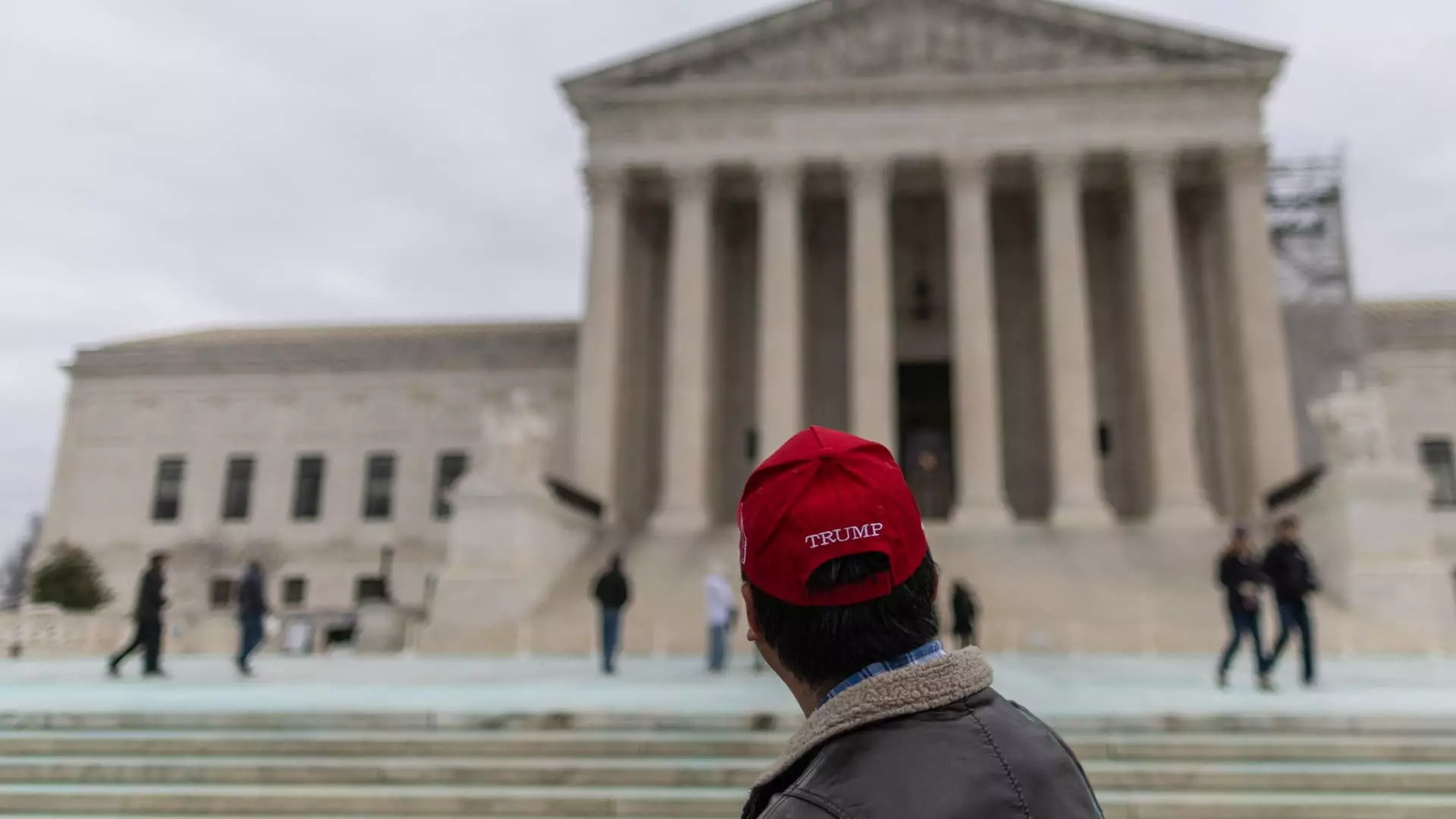The political landscape of the United States has been significantly impacted by the tension between the executive branch and the judiciary, particularly under the Trump administration. Recently, the administration’s action to seek the Supreme Court’s involvement in the case of Hampton Dellinger, the head of the Office of Special Counsel, underscores a controversial approach to governance. The implications of this legal struggle could resonate deeply within the fabric of federal civil service protections designed to shield whistleblowers from retaliation.
The Case at Hand
The legal actions surrounding Dellinger’s dismissal have emerged as a critical focal point in understanding the relationship between the administration and its earlier commitments to constitutional oversight. Dellinger, appointed by President Biden, was terminated under suspicious circumstances that raised numerous questions about his removal’s legality. According to Dellinger, the law stipulates that he can only be dismissed for specific performance-related issues, none of which were cited at the time of his firing. His reinstatement by a lower court, which the Trump administration is now aggressively challenging, reflects an ongoing dispute about the balance of power between the presidency and established safeguards for federal employees.
In filing an emergency appeal, the Justice Department has signaled its intent to contest the judicial order that temporarily reinstated Dellinger until the case can be thoroughly assessed. The administration’s argument hinges on a substantial claim of executive authority, suggesting that judicial involvement in personnel decisions encroaches on the executive branch’s powers. This appeal is particularly crucial because it may signal the beginning of larger confrontations between the Trump administration and the federal judiciary.
Dellinger’s case is not simply a legal skirmish; it embodies a broader struggle for the integrity of the whistleblower protection framework. Recent analysis shows an alarming rate of dismissals without transparent cause among federal employees, ostensibly driven by the current administration’s desire to reshape the federal workforce. The Office of Special Counsel plays an essential role in safeguarding federal employees from unjustified retaliatory actions, making Dellinger’s leadership paramount during a time when such protections are at risk.
The potential consequences of undermining whistleblower protections could lead to a chilling effect where federal employees may fear reporting misconduct or irregularities. The increase in terminations without just cause could significantly erode public trust in the federal system and dissuade individuals from stepping forward to address corruption or malpractice in government operations.
As this case progresses, the focus will turn to the Supreme Court, especially considering its current conservative composition. The outcome of this case could set a crucial precedent regarding the limits of executive power, particularly in relation to the judiciary’s role in upholding civil service protections. Historically, the Supreme Court has wrestled with the implications of a strong executive, balancing the need for efficient governance with the necessity of accountability and transparency in government operations.
While the administration can leverage its influence over the Court, the justices will have to consider the constitutional foundations of civil service protections and the ramifications of siding with the administration. The divergence in views regarding executive power could lead to key rulings that redefine administrative authority and its boundaries in the relationship with independent agencies.
The ongoing legal battle surrounding Hampton Dellinger’s dismissal represents more than just an administrative dispute; it serves as a bellwether for the future of whistleblower protections in the United States. As challenges to established norms intensify, the Supreme Court’s eventual decision will illuminate how far the balance of power can tilt in favor of the executive branch at the expense of critical whistleblower safeguards. This case symbolizes a pivotal moment, raising essential questions about the preservation of federal employee rights in the face of a broad executive push for change. The implications of this struggle extend beyond this one case, with the potential to reshape the very landscape of governance and accountability in the United States.


Leave a Reply